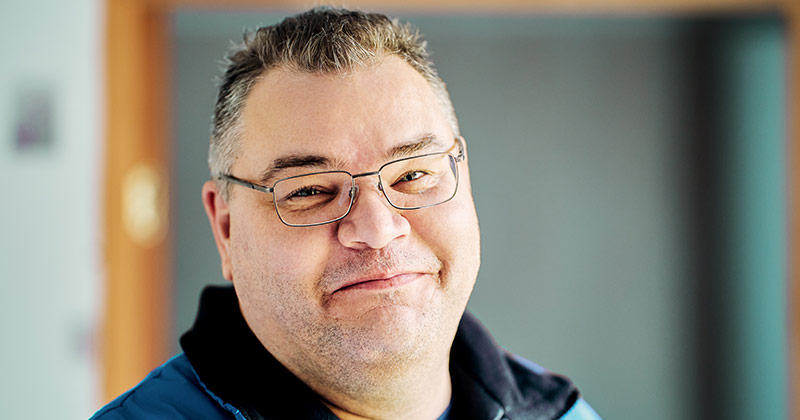Obsessive-Compulsive Disorder Treatment
“If you wait for the perfect moment when all is safe and assured, it may never arrive. Mountains will not be climbed, races won, or lasting happiness achieved.” – Maurice Chevalier
Obsessive-compulsive disorder (OCD) affects nearly 3 million Americans every year. If you’re one of those 3 million people, you know living with this condition is not easy. Your obsessions and compulsions consume your entire life, taking up precious time that you can’t get back. But it doesn’t have to be that way forever. At Ocean’s Healthcare, we empower you with the skills you need to successfully overcome OCD symptoms and reclaim your life.
The Oceans Experience
Oceans is committed to providing quality behavioral health in a safe environment. With our telehealth capabilities we can conduct therapy, education and diagnosis via phone or video. We accept Medicare, TRICARE and most private insurance.
What We Treat: OCD (Obsessive-Compulsive Disorder)
Obsessive-compulsive disorder (OCD) is a chronic condition in which you have unwanted thoughts (obsessions) that drive you to complete repetitive tasks (compulsions). These obsessions and compulsions often get in the way of daily activities.
At Oceans Healthcare, we know you don’t just wake up one morning with OCD. Trauma and other serious life events often play a part in how OCD develops. The longer those underlying factors go untreated, the more intense your OCD is likely to become.
You don’t have to wait until you get to a breaking point to reach out for help. The passionate, expert clinicians at Oceans Healthcare are ready to provide you with world-class care.
With over 30 locations around the country and more than 34 thousand clients treated annually, Oceans Healthcare has the expertise necessary to get you the care you deserve.

How We Treat: Evidence-Based Treatment Options
We have multiple options for treating OCD. The level of treatment that’s right for you will depend on the severity of your symptoms and how they’re impacting your daily life.
Residential or Inpatient Services
Our residential treatment facility allows you to step away from the stress of daily life and work exclusively on learning to take charge of your symptoms in a calm, structured environment.
Inpatient treatment at Oceans Healthcare isn’t a sterile hospital setting. At Ocean’s, you’ll be in a warm, comfortable, home-like environment. Our world-class clinicians will handle your daily schedule, which will involve individual and group therapy.
Partial Hospitalization Program
In our partial hospitalization program (PHP), you’ll participate in four to five hours of rigorous therapy and treatment. At the end of the day, you’ll return to your home. PHP is a great fit for people who need on-location treatment but want or need to be home in the evenings.
PHP will empower you to get to the root of any underlying conditions that contribute to your experience with OCD. You’ll learn coping mechanisms to help you cope with your symptoms and reclaim your life.
Intensive Outpatient Program Services
The Intensive Outpatient Program (IOP) provides you with more support than traditional outpatient therapy but allows you to continue your life as normal outside of treatment.
Our IOP will provide you with approximately 3 hours of treatment in the evening up to four days a week while you develop skills to take charge of your OCD symptoms. You’ll have the opportunity to meet with a physician once a month.
What Are the Causes of OCD?
We don’t understand the exact causes of OCD, but multiple factors contribute to the development of OCD. The causes of OCD aren’t necessarily the same for every person with the condition.
- Family history: People who witnessed immediate family members’ experiences with OCD are at a greater risk of developing OCD themselves. Genetics may also play a role in the development of OCD within families.
- Changes to the brain: The structure of the frontal cortex and the subcortical part of the brain are often different in people with OCD. The condition is sometimes comorbid with other conditions that affect the same parts of the brain, including Tourette’s syndrome, Parkinson’s disease, and epilepsy.
- PANDAS syndrome: PANDAS syndrome is an abbreviation for “pediatric autoimmune neuropsychiatric disorders associated with streptococcal infections.” It refers to behavioral conditions commonly found in people who experienced strep throat or scarlet fever as children. OCD is one of the conditions in this group.
- Adverse childhood experiences (ACEs): There is a strong association between ACEs and OCD. This can include physical, emotional, or sexual abuse, as well as neglect. OCD might develop in this case as an attempt to control one’s environment.
Who Does OCD Affect?
OCD affects approximately 3 million Americans. The condition is almost three times more common in women than it is in men, and it usually arises in childhood or young adulthood. However, OCD can impact anyone of any age, gender, or race.
If you or someone you love is living with OCD, you know the condition has a serious impact on the way you live your life. With the right support, anyone can manage their OCD symptoms, even in severe cases.

Symptoms of OCD: The Difference Between an Obsession and a Compulsion
There are two primary types of symptoms when it comes to OCD: obsessions and compulsions. In the case of OCD, these are severe symptoms that prevent you from living your day-to-day life. If you’re like many people with OCD, you could be aware that your behaviors make your life harder, but you cannot stop yourself.
Symptoms of OCD are not always consistent. Sometimes, they improve for a while, then get triggered by something in your environment. Alternatively, symptoms can worsen over time.
Obsessions in OCD
Obsessions associated with OCD are unwanted, intrusive thoughts and mental images that cause severe distress. You could be aware that these thoughts are irrational, but they still bother you.
Common examples of obsessions include:
- Unwanted thoughts or mental images about sex
- Extreme fear of making a mistake
- Severe fear that you or someone else is going to be hurt if you’re not careful
- Unwarranted fear of coming in contact with a “contaminant” like dirt or germs
- Excessive concern with what is “right” and what is “wrong”
Compulsions in OCD
Compulsions associated with OCD are actions you feel like you must complete to ease or rid yourself of an obsession. These aren’t tasks you enjoy or derive pleasure from, but you feel they will reduce your anxiety. Eventually, the obsession will return, and you’ll feel the need to complete the compulsion again.
It’s important to note that compulsions do not necessarily have a logical tie to the obsession you associate them with. For example, touching a doorknob repeatedly may ease anxiety about fears of an earthquake.
Common examples of compulsions include:
- Arranging things in a specific way and getting upset if they are moved
- Rigorously collecting items of no significant personal or economic value
- Saying certain words while doing a specific task
- Obsessively counting or feeling compelled to do something a specific number of times
- Repeatedly washing your hands or cleaning something over and over.
How Is OCD Diagnosed?
There is no test used to diagnose OCD. Instead, your doctor or another medical professional will perform a psychological evaluation. You’ll have the opportunity to discuss your medical and mental health history. You’ll give a detailed account of your symptoms. Then, your healthcare provider will compare your symptoms to those described in the Diagnostic and Statistical Manual of Mental Disorders, 5 Edition (DSM-5).
The criteria for OCD highlighted in the DSM-5 include:
- Having obsessions, compulsions, or both
- Obsessions take up more than 1 hour a day
- Obsessions or compulsions cause distress that prevents you from participating in important life activities, including social events and work responsibilities
Your care provider will also perform a physical exam to rule out other potential causes for your symptoms. For example, generalized anxiety disorder (GAD), an eating disorder, or body image issues could all cause symptoms similar to OCD.
At Oceans, each of our clients is assigned to an overseeing board-certified psychiatrist. When you receive care at Oceans, your psychiatrist will help you determine the diagnosis that best fits your symptoms.
The prospect of receiving a diagnosis can feel overwhelming. But you don’t have to be defined by it. A diagnosis is just one tool to help you identify and gain control over your condition. Once you give a name to your OCD, you can work towards managing your symptoms.
OCD Treatment and Management Options in Dixie Land
Don’t let OCD symptoms control your life. The first step to taking back control is to seek treatment. At Ocean’s Healthcare, we’re here to empower you with the right combination of therapy, skill development, and medication management.
Get started with OCD treatment today. Oceans Healthcare takes 24/7 referrals, so we’re always ready. With a foundation in geriatric care, we understand the importance of treating complex cases, emphasizing both physical and mental health. We also create a highly collaborative environment where you’ll have a whole team of clinicians working to provide you with the best care possible. Call us now at 888-293-6899.
Oceans Healthcare: Your Path, Our Purpose.

